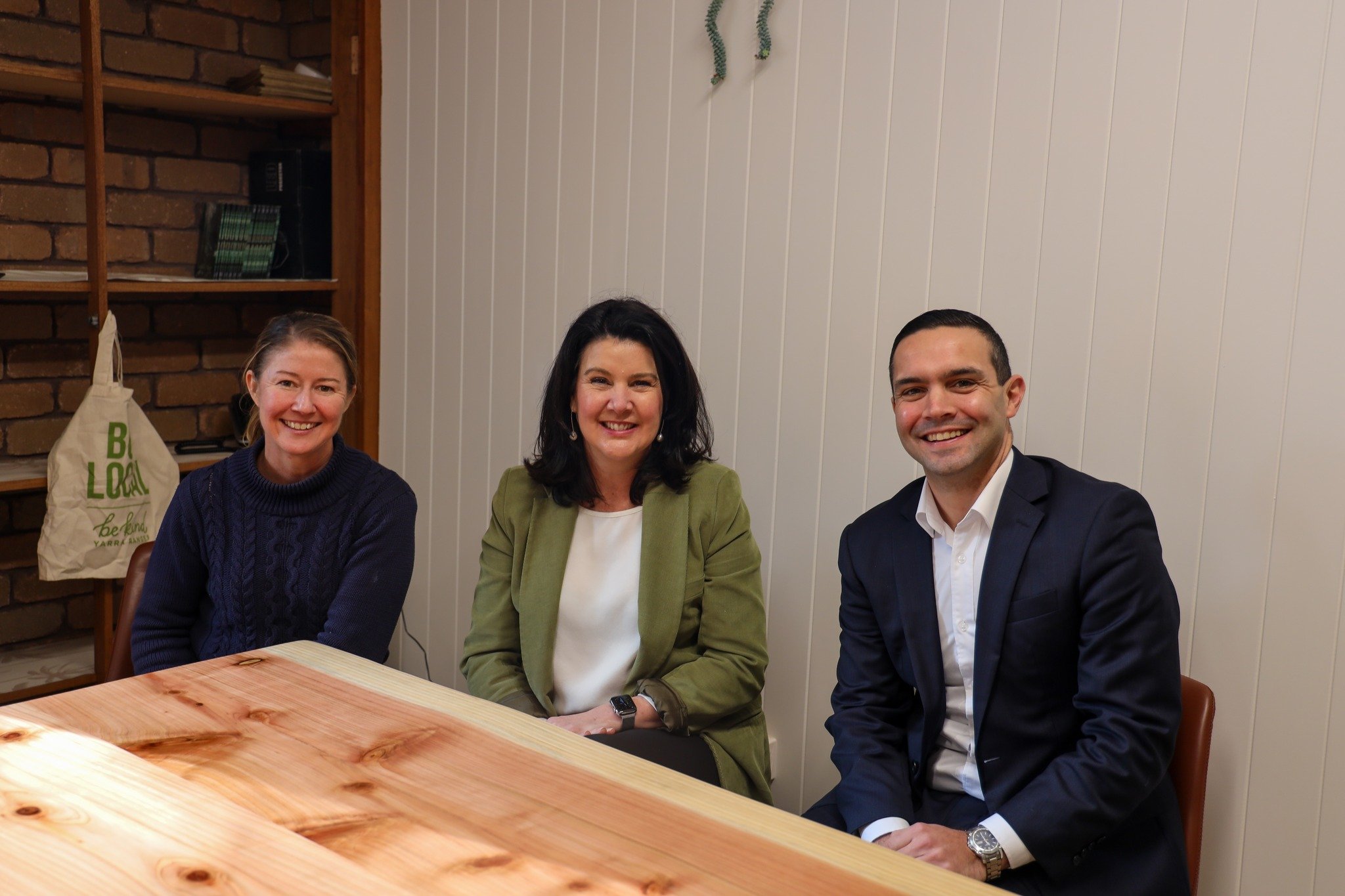The Great Childcare Desert
Finding care has become an almost impossible task for mums in the hills.
In July, we met with Federal minister for Casey, the Hon Aaron Violi MP and Senator Jane Hume to discuss the effect that the current cost of living is having on our area. We were quick to address the issue but also highlighted barriers that hindered our ability to react to a changing financial climate; number one being the limited long daycare options within the Dandenong Ranges.
In the lead up to the Casey Federal election last year, we highlighted this ABC article on child-care blackspots, which described areas like the Yarra Ranges region as a childcare ‘desert’. Sadly, little has changed since then, with 15.43–15.87 children still competing for every childcare place in the Yarra Ranges region and many families currently on two year waitlists for available spots. It’s little wonder I’ve been told that finding childcare is now one of the biggest concerns for parents of young children.
Despite small improvements, mums are still more likely to take on the lion’s share of child care responsibilities in families, according to the 2021 census statistics. For the first time, the census survey also recorded more than one million families as ‘one-parent’ families, of which four out of every five of those parents were female. The burden of finding childcare or facing financial disadvantages is disproportionately more likely to fall on women than men.
As the cost of living skyrockets, more parents are looking for second jobs, increased hours, or returning from maternity leave early to alleviate financial stresses. Finding long daycare options in our area has become critical to support this. Census data, however, highlights another aspect of parent life in the hills: 53% of local residents don’t work in the region and our average commuting distance is considerably higher (28 km) than the average Victorian (16.7 km). Having longer daycare hours is critical to support commuters, but doesn’t necessarily convert to more earnings. In other words, longer daycare covers our commute, not our bills.
The recent increase in childcare rebates were intended to help families cope with rising costs, but anecdotal evidence in the Yarra Ranges shows that many centres have increased their fees, thus eroding the savings intended for families. While lack of affordable, quality care in many of the world’s wealthiest societies proves that Australian parents aren’t the only ones struggling, and we acknowledge that the rising costs of goods, services and utilities have undoubtedly also hit childcare centres, yielding unavoidable fee hikes, this information is little comfort for local parents.
Between 15.43 and 15.87 children compete for every 1 childcare place in the Yarra Ranges region. Many families are currently on childcare waitlists anywhere up to and beyond 2 years for available spots.
There are several likely reasons (such as bushfire risk, availability of safe space and staff) for the dearth of long daycare centres in the ridge towns of Kalorama, Olinda, Sassafras and Ferny Creek. Whatever the reasons, the increased pressure on long daycare centres skirting the mountain as resulted in two-year waitlists and expectant mothers applying for care shortly after their 12-week scans. A variety of solutions must be considered and MotHs is keen to help find solutions.
Increasing the number of existing centres by extending their hours to offer long daycare (7 am–6 pm) would be a welcome and obvious start. Additional centres are also necessary to meet demands however we’re not blind to the fact that before any of this happens, drastic systemic change is required. New infrastructure and/or longer hours at existing centres can’t be created while there is such a chronic shortage of qualified staff. Childcare wages are so low that the sector is financially unattractive. It is unsurprising that prices at childcare centres went up at the same time as the childcare subsidy announcement, just to retain quality staff. Even Iceland, a country considered to have one of the best childcare policies anywhere in the world, one that spends 1.7% of their GDP in the sector, is struggling from staff shortages.
Staff sickness and burnout due to children being sent to care centres while ill is another challenge for the sector. Japan has novel (albeit politically polarising) social enterprise and government services where in-home and centre based childcare options are available for sick children, enabling working parents to continue working while reducing the number of sick children in childcare centres. While the thought of leaving a sick child who only wants their parent’s comfort would make anyone uncomfortable, it also simultaneously highlights society’s current failings and future opportunities.
One of the positive outcomes of the COVID 19 pandemic lockdowns was the increased flexibility of working locations and hours. Increased employer acceptance of working from home has vastly opened up opportunities for parents, notably mothers. Some businesses have thrived by providing flexible and unconventional working hours to accommodate the needs of their workers. For a commuter belt region such as ours where access to long daycare is limited, changes to office hours expectations could ease the strain. Co-working spaces like the MotHs Hub could be rented by organisation’s to enable their staff living in this region to work together locally once a week rather than separately at home or all commuting out of the region. This is a win-win allowing collaboration and social connection without the commute or the cost.
MotHs is keen to understand the barriers to solving this problem and advocate for measures to overcome them. Whether we increase government spending, provide alternative childcare options, increase maternity/paternity leave payments or re-image the traditional work day setting, something radically different is needed to alleviate this ongoing problem before we even start to consider expanding the number of childcare centres in the region. Until this is solved, cost of living crisis or not, the Mums of the Hills group families will continue to hear the concerned voices of local families.



